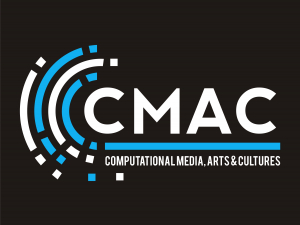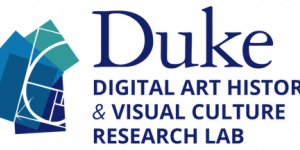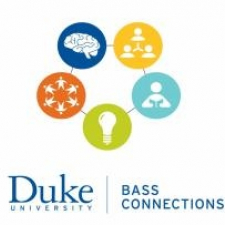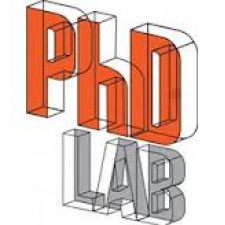Certificate and Degree Programs
Information Science + Information Studies
Undergraduate and Graduate Certificates
The Information Science + Studies Program offers Undergraduate and Graduate Certificates for work that combines theoretical and critical approaches to information technology with hands-on, project-based work. The ISS mission is "to study and create new information technologies and to analyze their impact on art, culture, science, commerce, society, policy, and the environment." Undergraduate students may fulfill the Certificate requirements through participation in a variety of interdisciplinary labs and projects, including those associated with Bass Connections in the Information, Society & Culture and other themes.
MA in Digital Art History & Computational Media
PhD in Computational Media, Arts & Cultures
The MA in Digital Art History/Computational Media is housed in the Department of Art, Art History & Visual Studies offers an 18 month program leading to a MA in either Digital Art History or Computational Media. DAH students work within the Wired! Lab for Digital Art History & Visual Culture while the Computational Media Studies work with one of several other interdisciplinary labs, including the Information Science + Studies Lab, Emergence, S-1 Speculative Sensation, the Digital Archeology (DiG) Lab or Duke Art, Law and Markets (DALMI). Students may also work on MA projects in connection with the interdisciplinary labs in the Franklin Humanities Institute.
The PhD in Computational Media, Arts & Cultures is an interdisciplinary PhD program sponsored by Art, Art History & Visual Studies, the Program in Literature, and the Franklin Humanities Institute. Students in the program pursue hybrid written-digital PhD dissertations, and will be expected demonstrate abilities in both computational and analogue modes of scholarly production. Affiliated faculty members include representatives of art, humanities, social sciences, sciences, and engineering.
Undergraduate Major and Minor in Computational Media
NEW: Starting in Fall 2021, the Departments of Computer Science and Art, Art History & Visual Studies will also partner on a formal major and minor in Computational Media. The program will be housed in AAHVS and participate in activities with the CMAC Labs and other interdisciplinary programs and labs with a digital dimension. All students will be required to complete a computational media project as part of their major requirements. In some cases that may be fulfilled by summer internships and projects and through participation in co-curricular programs and activities.
Research Opportunities
Duke’s Digital Art History & Visual Culture Research Lab, located at the Wired! Lab, is a dynamic research community of faculty, staff, and students. We engage and advance critical digital methods to promote new approaches to scholarship and pedagogy in the study and interpretation of the visual arts, architecture, cultural heritage, and urban environments.
Bass Connections offers opportunities to participate in research teams that often have digital projects and outcomes. You can also find excellent DH-related opportunities by participating in the summer Data+ and Story+ programs.
Fellowships
PhD Lab in Digital Knowledge Fellowship
Eligibility: Graduate students only
The PhD Lab in Digital Knowledge at the Franklin Humanities Institute (FHI) provides an arena in which PhD and MFA students involved in the humanities and interpretive social sciences can learn about new digital scholarship, engage with its challenges, and see its promise for their own research and professional lives within or outside the university. In the PhD Lab, we seek to balance the practical and the conceptual by allowing participants to prototype projects and receive peer feedback to enrich their understanding of the potential of digital scholarship.
What do PhD Lab Scholars get?
- $1500 annual stipend
- Assigned workspace in the PhD Lab
- Opportunity to seek feedback on work from invited faculty and other PhD Lab Scholars
- Access to resources and contacts through the Duke Digital Humanities Initiative and HASTAC
What are PhD Lab Scholars expected to do?
- Actively work on a digital project and invite feedback and collaboration where useful
- Attend luncheon workshops (usually two per month), on Fridays from 12:00 to 1:30 pm, where PhD Lab Scholars and invited faculty will present their work and seek critical feedback
- Engage in a larger campus conversation about the future of digital research at Duke particularly in the humanities.
- Attend other relevant professional development workshops
- Blog about or present their work at conferences




